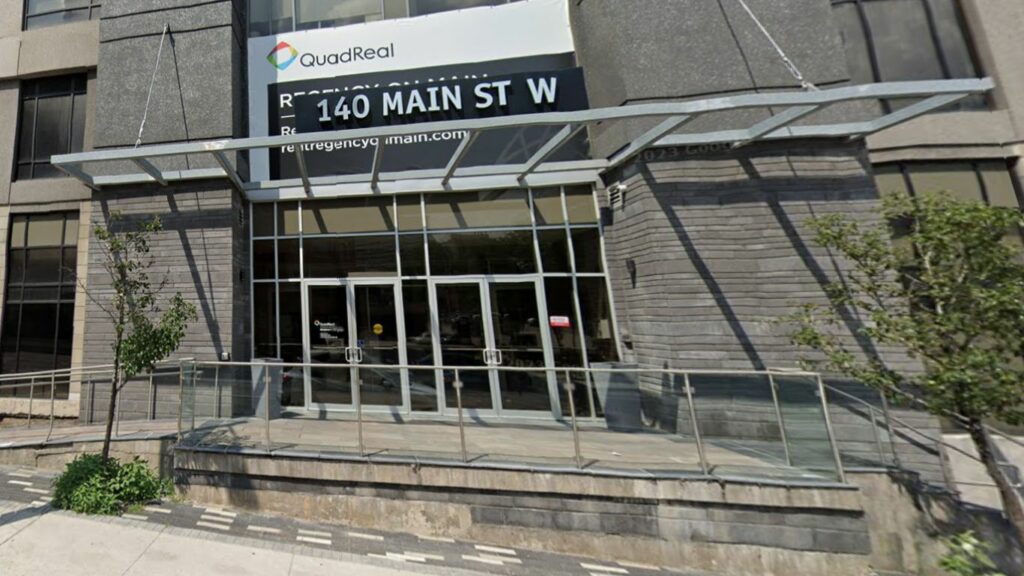
Police in Hamilton, Ontario had a case thrown out of court for violating a person’s Charter rights in a no-Knock raid in 2021.
The case against a woman related to a 2021 raid by police in Ontario has been thrown out of court, along with collected evidence, after an Ontario Superior Court Judge ruled police violated her rights in an unnecessary no-knock raid.
The judge ruled that Hamilton Police Service (HPS) violated the woman’s Charter rights with “cavalier disregard” after smashing their way into her downtown apartment home to look for drugs, which was reported first by CBC Hamilton.
The case against the Hamilton woman, Ms Russell, and the evidence officers seized—which included $500,000 of cannabis products, $50,000 in cash, and some magic mushrooms—were thrown out of court, according to a Jan. 25 ruling by Ontario Superior Court Justice Andrew Goodman, reports CBC.
The judge found that police were unable to explain why they broke down the woman’s door, despite testifying that there was no information that the occupants were armed or dangerous, and that police had no safety or weapons concerns related to the raid. Police also failed to identify themselves prior to entering the woman’s apartment. Police were unaware the occupant had a video camera that detailed the entry and contradicted police claims.

Court documents show that while officers who testified all claimed that, upon entry, they shouted, “police” or “police – search warrant,” this was contradicted by the audio video CCTV captures of the police entry into the unit.
“Rather, the CCTV shows police breaking down the door to unit 2502 with a battering ram, which took many strikes, entering the unit with weapons drawn in a holding position, and then yelling “search warrant, get on the f*** ground” after gaining entry,” notes the court report.
The judge expressed several concerns with how police conducted themselves in this raid. Police also failed to inform Russell of one of the charges against her relating to the seized psilocybin.
Police claim that a “dynamic” no-knock entry can be necessary to ensure evidence is not destroyed.
“It is well established that generic information about the potential presence of drugs in a home is insufficient to warrant the dynamic entry,” wrote the judge in his decision, writing that “dynamic entries were verging on becoming a systemic problem in Hamilton.”
History of raids of “Georgia Peach” cannabis dispensary
In late 2020, the Hamilton Police Service first became aware that a cannabis dispensary known as the “Georgia Peach,” which had formerly had brick-and-mortar storefronts and had faced raids and closures on four locations in 2018, was operating as an online delivery service. The business quickly reopened their brick and mortar business in 2019 following the initial raids.
Hamilton Police discovered the business had moved to an online model in 2020 from four confidential informants. Based on information received from these sources, the HPS began an investigation into the Georgia Peach, which they believed to be operating out of a residential unit in a nondescript building in Hamilton.
Police began conducting surveillance on the building in late 2020, observing what they believed to be suspected delivery drivers for the Georgia Peach dispensary entering the building. Officers claim that observed evidence, such as the alleged odour of cannabis coming from some of these drivers, led them to focus their investigation on the building.
Hamilton Police officers executed their search warrant on June 2, 2021. They arrested four women and seized Canadian currency, a quantity of psilocybin, and hundreds of pounds of cannabis.
Police did not file a Report to a Justice (RTJ) for this evidence. Following the seizure of property, an officer is required to submit a “Report to a Justice” to be taken before a Justice.
The judge in the case notes that without an RTJ, “what has transpired is effectively a continued unlawful detention of the seized items, from June 2, 2021 until present day.”
Police told the court this was an oversight, but had no explanation for why the seized drugs and cash were never reported. The court rejected this argument.
“The seriousness of this breach is underscored both by how long it went on for—over two years—and the sheer number of officers who participated in this search. This is especially troublesome given the nebulousness of the evidence in reviewing the whole operational plan,” they wrote.“
For all of the aforementioned reasons, I find that the applicant’s ss. 8, and 10(b) Charter rights were breached,” the judge concluded. “Pursuant to s. 24(2) of the Charter, all the drugs and drug-related evidence seized from unit 2502 is to be excluded.”













